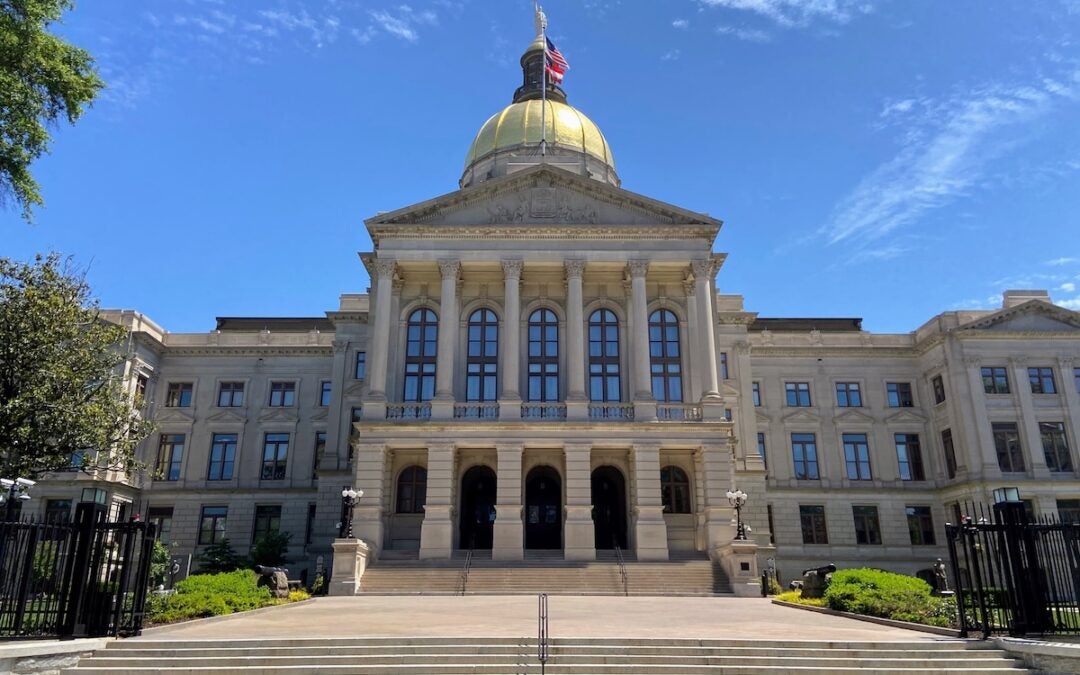I don’t think Columbia County has ever seen a project this large or this secretive. The proposed White Oak Technology Park promises billions in private investment and the potential to erase property taxes. Yet five months after the rezoning vote, the conversation is dominated by distrust rather than excitement.
While county leaders assert that the project will benefit the community, critics counter that both the approval process and the nature of data centers have led to suspicion. Citizens for Open Governance, a new organization, emerged to voice these concerns.
At the Oct. 7 Board of Commissioners meeting, Tonya Bonitatibus of Savannah Riverkeeper raised environmental critiques of the project. She expressed worries about water shortages in neighboring Georgia communities and urged leaders to reconsider transforming the Harlem/Appling area into an “industrial corridor.”
Her comments echoed earlier concerns that while data centers may bring tax revenue, they also consume massive resources. The rezoning packet for White Oak estimated a worst-case scenario water demand of 6.5 million gallons per day, with nearly 4 million added to the sewer system. Regardless of the water source, residents are seeking clear commitments regarding sustainability and managerial oversight.
County leaders have begun drafting new zoning language to regulate data centers directly. Proposed amendments to Section 90-147 of the Columbia County ordinance, shared by the Economic Development Authority and posted on The Austin Rhodes Show Facebook page on Oct. 24, will create a new industrial-use category that defines and limits data centers and research facilities. The proposal includes caps on noise (70 decibels), rules for generator testing, lighting, bans on on-sitei wells, and even a “cessation of operations” clause requiring closed sites to be demolished and restored. These proposed standards appear to answer some of the concerns residents have raised, but they also highlight that the county had no such rules in place when the White Oak rezoning was approved. It’s better late than never.
At the Oct. 21 meeting, the Commissioners released a letter defending the project and denying any misconduct. They emphasized that the data center park is still in the planning phase and reiterated that no end user has been identified. The letter assured that any facility would comply with Georgia laws and local regulations. Also, the developer, not taxpayers, will bear all infrastructure costs for expanding sewer and/or water systems. The final approved rezoning packet also includes that as a provision. The letter also stated that groups, such as Citizens for Open Governance, are spreading false and inflammatory information.
In a series of October radio interviews on the Austin Rhodes Show, local and state officials amplified their optimistic message. On the Oct. 7 show, Chairman Doug Duncan described White Oak as “potentially the largest investment in Georgia history,” asserting again that the developer will fund water and sewer expansions. He promised that no taxpayer dollars would be used to support the project’s infrastructure. He stated that the projected tax revenue could eliminate residential property taxes for eligible homeowners in Columbia County.
Public Service Commissioner Tim Echols, appearing on the Oct. 8 show, insisted that the PSC took steps to ensure that data center construction would not raise electricity rates for residential consumers. New pricing structures will reduce bills statewide by about $2 per month because data centers must pay for their own power infrastructure. (Don’t y’all spend that $2 all at once!) Many consumers, though, are wondering why the PSC waited until an election year to implement these protections, especially after raising rates substantially in recent years. (Early voting has already started in the PSC election, and these seats are statewide elections.)
Meanwhile, Columbia County School Board member Philip Kent indicated on the Oct. 21 show that if projected revenues hold, he will support cutting and possibly eliminating school property taxes for qualifying homeowners as well.
Together, these officials have painted a pretty picture: clean industry, no public cost, and tax cuts for homeowners. It’s an appealing narrative, but it depends on a future that’s still uncertain. There’s no confirmed end-user, no finalized cooling system, and no guarantee that the optimistic revenue projections will pan out.
This controversy isn’t just about the data center, it is also about the approval process. County officials and the Economic Development Authority of Columbia County (EDACC) began discussions as early as June 2024. Commissioners were unable to communicate the project to constituents earlier in the process due to non-disclosure agreements (NDAs). Commissioner Alison Couch even wrote that she wanted to cancel her NDA in March 2025. I tried to get copies of the NDAs through open records requests, but the EDACC stated they didn’t keep copies. The developer kept all the copies. The public still cannot see exactly what elected officials signed in those NDAs.
The county has ample legal representation, so I’m sure the NDAs are legal, and they are common in economic development deals. This project was very far along in the approval process though before commissioners could talk about it. With the signed NDAs not available for public review, it further erodes trust. Also, there could have been a heads-up to the public that something big was happening when the EDACC voted on the land sale in December 2024. Reporters left during the executive session, though, so they missed the public vote after. Reminder: consequential votes sometimes come after the closed-door executive session, and the meeting isn’t over until the chair says it’s adjourned. Of course, it’s also in the meeting minutes posted on the EDACC website.
Anyway, public frustration resurfaced when the Board’s Oct. 21 letter assured the public that nothing improper had occurred. Technically, that is likely true. However, perception matters because often people’s perceptions become their reality.
Some are also concerned with the overall strain on the power grid. Data centers, by design, draw enormous amounts of electricity. Georgia Power has already warned that surging data center demand will pressure the state grid and require new generation, including fossil-fuel capacity. Some have also asked, in the case of a prolonged power outage, will the data center be prioritized over residential customers?
On the water side, county officials say the facilities will likely use closed-loop cooling systems that reuse most of the water. That technology drastically reduces water consumption compared to older evaporative systems. Still, it introduces its own risks, such as the use of glycol, a coolant that must be handled carefully to avoid contamination. If the data centers use non-toxic glycol, the system would use more electricity.
Those draft amendments are encouraging, but rules on paper don’t automatically create accountability. Residents still want to know who will monitor compliance, how violations will be handled, and whether updates will be shared publicly without requiring open-records requests.
Supporters cite potential annual tax revenue of $118 million at full build-out. But that figure, as county officials acknowledge, is an educated guess based on typical data center valuations, not confirmed contracts or users. Those benefits could take a decade to materialize.
Ultimately, White Oak Technology Park is about more than servers and cooling towers. It’s a test of how Columbia County manages growth in an era of megaprojects and public-private partnerships. Transparency should not be seen as a threat to economic development. NDAs should expire well before zoning votes. Public outreach should happen before decisions are finalized. Further, periodic updates should be published without residents having to file open records requests.
Residents should keep showing up, having conversations, and seeking facts from reputable sources rather than rumors. Environmental groups should also organize a task force to work with county officials and the developer, as they have the expertise to address environmental impacts. Growth isn’t going to stop, but it can be shaped responsibly.
The project is moving forward. The commission has said it cannot rescind the rezoning without risking a costly lawsuit. However, it remains in its early stages. The end user remains unknown, which means there’s still time for officials to honor their pledges of future transparency and reduced environmental impacts.
Growth is inevitable. Trust is optional, though, and it must be earned not only through open dialogue but through actions that match words.
The next Columbia County Commission Meeting is on Nov. 4 at 6 p.m. in the auditorium located at 630 Ronald Reagan Drive in Evans. I hope to see you there.











